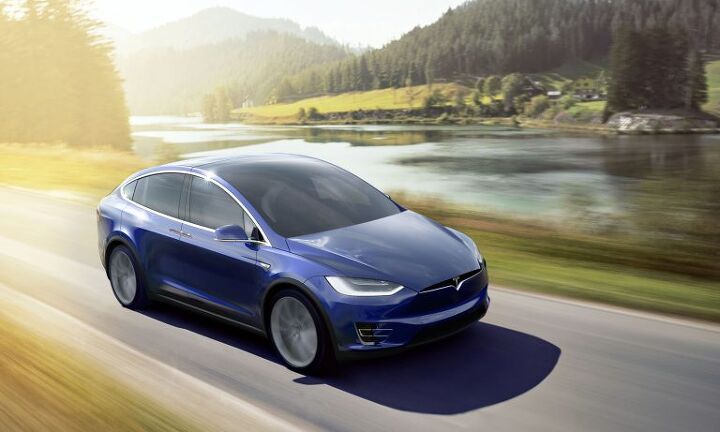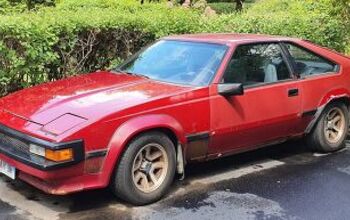Tesla Buys Solarcity for $2.6 Billion, Wants to Sell You a Whole New Lifestyle

To bastardize an old Dodge slogan, if you’re willing to devote your life to sustainable driving and ditch your electricity provider, you could be Tesla material.
The electric automaker announced a deal with solar company SolarCity today — an all-stock agreement worth $2.6 billion. Acquiring the nation’s largest rooftop solar provider gives Tesla CEO Elon Musk the top-to-bottom green company he always wanted, but it opens the company up to new risks.
In a blog post on its website, Tesla stated, “As one company, Tesla (storage) and SolarCity (solar) can create fully integrated residential, commercial and grid-scale products that improve the way that energy is generated, stored and consumed.”
Yes, Tesla promises to give you that off-the-grid lifestyle you’ve secretly longed for, or at least a closer-to-being-off-the-grid existence. Model X SUVs are great for carrying around Powerwalls, by the way.
The deal values the solar company’s stock at $25.37 per share, and its shareholders will receive 0.11 Tesla shares for every SolarCity share. Independent members of each company’s board approved the deal, after certain members recused themselves from the decision. That obviously included Musk, who founded both companies, serves as SolarCity’s chairman, and owns 20 percent of each company’s shares.
The deal still needs shareholder approval, and SolarCity is allowed to solicit offers from other buyers until September 14.
When Tesla announced its plans to acquire the solar company, backlash was swift and harsh. Some accused the automaker of propping up a company to avoid financial ruin. Others claimed that taking on a new venture of this size could endanger Tesla’s car building efforts, especially as it ramps up production in advance of the Model 3.
Bloomberg notes that the deal rings in at $300 million less than initially planned, thanks to investor criticism. In an unfortunate display of timing, SolarCity downgraded its installation forecast by one-tenth today, adding more fuel to the rumors. The company expanded rapidly during the past several years, but its growth is now on the wane.
In its blog post, the automaker said the deal would help both companies realize savings:
We expect to achieve cost synergies of $150 million in the first full year after closing. We also expect to save customers money by lowering hardware costs, reducing installation costs, improving our manufacturing efficiency and reducing our customer acquisition costs. We will also be able to leverage Tesla’s 190-store retail network and international presence to extend our combined reach.
Tesla expects the deal to be completed in the fourth quarter of this year.

More by Steph Willems
Latest Car Reviews
Read moreLatest Product Reviews
Read moreRecent Comments
- Alan Well, it will take 30 years to fix Nissan up after the Renault Alliance reduced Nissan to a paltry mess.I think Nissan will eventually improve.
- Alan This will be overpriced for what it offers.I think the "Western" auto manufacturers rip off the consumer with the Thai and Chinese made vehicles.A Chinese made Model 3 in Australia is over $70k AUD(for 1995 $45k USD) which is far more expensive than a similar Chinesium EV of equal or better quality and loaded with goodies.Chinese pickups are $20k to $30k cheaper than Thai built pickups from Ford and the Japanese brands. Who's ripping who off?
- Alan Years ago Jack Baruth held a "competition" for a piece from the B&B on the oddest pickup story (or something like that). I think 5 people were awarded the prizes.I never received mine, something about being in Australia. If TTAC is global how do you offer prizes to those overseas or are we omitted on the sly from competing?In the end I lost significant respect for Baruth.
- Alan My view is there are good vehicles from most manufacturers that are worth looking at second hand.I can tell you I don't recommend anything from the Chrysler/Jeep/Fiat/etc gene pool. Toyotas are overly expensive second hand for what they offer, but they seem to be reliable enough.I have a friend who swears by secondhand Subarus and so far he seems to not have had too many issue.As Lou stated many utes, pickups and real SUVs (4x4) seem quite good.
- 28-Cars-Later So is there some kind of undiagnosed disease where every rando thinks their POS is actually valuable?83K miles Ok.new valve cover gasket.Eh, it happens with age. spark plugsOkay, we probably had to be kewl and put in aftermarket iridium plugs, because EVO.new catalytic converterUh, yeah that's bad at 80Kish. Auto tranny failing. From the ad: the SST fails in one of the following ways:Clutch slip has turned into; multiple codes being thrown, shifting a gear or 2 in manual mode (2-3 or 2-4), and limp mode.Codes include: P2733 P2809 P183D P1871Ok that's really bad. So between this and the cat it suggests to me someone jacked up the car real good hooning it, because EVO, and since its not a Toyota it doesn't respond well to hard abuse over time.$20,000, what? Pesos? Zimbabwe Dollars?Try $2,000 USD pal. You're fracked dude, park it in da hood and leave the keys in it.BONUS: Comment in the ad: GLWS but I highly doubt you get any action on this car what so ever at that price with the SST on its way out. That trans can be $10k + to repair.


































Comments
Join the conversation
The problem with pushing solar panels to the Tesla Clientele is that they are fairly likely to live in neighborhoods with HOA's that prohibit the installation of them on the roof. I'm not endorsing that at all as I'd like to install them one day because Augusta, GA. The one benefit to this from my perspective is that maybe Tesla is a big enough entity to overpower the lobbiest at Georgia Power and have the non solar friendly states move that way.
"We expect to achieve "cost synergies"...." Hate when companies use fancy words to sell itself which is a sign that it doesn't know WTF it's doing, considering that I'm in the financial/accounting world! One unprofitable business buying out a similar one?? Good grief. Only the EV lovers would rationalize this and love it. Better for people to just install solar panels onto their house's roof than believe in EV batteries which has a shorter life span and limited use. Would've been better if the company did NOT receive ANY federal/state tax subsidies or buyer's tax incentives which come from other taxpayers' tax dollars! ^ THAT is the reason why Tesla is most hated... using taxpayers' dollars. The worst is when Tesla and EV lovers b$tch about others when they use Other Peoples' money instead of their own!